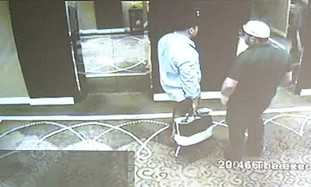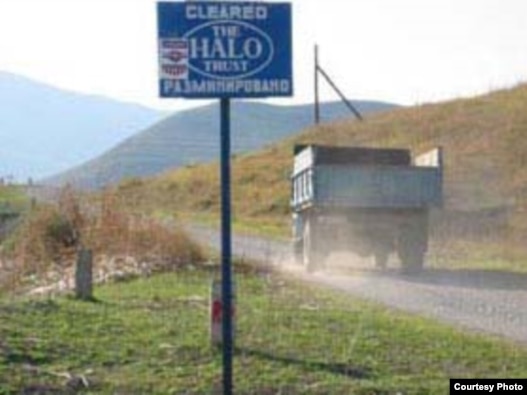Russian President Dmitry Medvedev unexpectedly criticized a government reform vote in Kyrgyzstan that passed Sunday with 91 percent support.
Kyrgyzstan's interim leader Roza Otunbayeva (front l.) greets a group of ethnic Kyrgyz citizens at a polling station on the day of a referendum in the city of Osh Sunday.
Sagyn Alchiyev/Kyrgyz Presidential Press/Reuters
Russian President Dmitry Medvedev arrive in advance of the G8 and G20 Summit at Pearson International Airport in Toronto, Thursday.
Gerry Broome/AP
Related Stories
- To make progress on Afghanistan and Russia, Obama must get Kyrgyzstan right
- Kyrgyzstan riots led to ethnic cleansing; government blames Bakiyev
- All Russia news coverage
Analysts confused by Russian move
Analysts say they are unsure what Medvedev might have been hoping to achieve by trashing the plan, since Russia's only hope of restoring stability in the region appears to ride with interim government head Roza Otunbayeva, whom it has supported since she came to power in April. But Russia dithered while riots shook Kyrgyzstan this month, and then decided against intervening in the turmoil, despite Kremlin assertions that the former Soviet Union constitutes a Russian "sphere of influence." Some analysts say Medvedev was voicing his frustration with what Moscow sees as a deteriorating situation in central Asia, which it seems increasingly incapable of dealing with. "In Moscow they are deeply disappointed with the interim government in Bishkek, which they had hoped would be stronger," says Alexei Malshenko, an expert with the Carnegie Center in Moscow. "But Russia's inaction reveals it as impotent to affect events in the region. It's a tragedy for Russian foreign policy, and this appearance of helplessness will encourage all of Moscow's enemies to be more active." Others argue that, while Medvedev's remarks may have been unhelpful, they merely expressed the traditional Russian skepticism about parliaments, which have always been seen as too fractious and divisive to impose decisive rule. Russia's own Kremlin-centered Constitution – which leaves parliament with mostly ornamental functions – was authored by former president Boris Yeltsin, after he dispersed his freely-elected but disobedient legislature with gunfire in 1993 "In Russia there is mistrust toward the very idea of a parliamentary republic," says Leonid Gusev, an expert with the official Institute of World Economy and International relations, which trains Russian diplomats. "Medvedev just said what he was thinking."Reforms aimed at stability
Ms. Otunbayeva has championed the constitutional reform as a means of breaking Kyrgyzstan's repetitive cycle of corrupt all-powerful presidents, whose excesses have triggered two street revolts in barely five years. On Monday Otunbayeva said that popular support for the measures means that Kyrgyzstan is now on the path to "a true government of the people... this is a very important, historic day for the country. The people have put a stop to the epoch of authoritarian and nepotistic government," she said. But many analysts fear that Kyrgyzstan may face more disruptions, including attempts by supporters of former president Kurmanbek Bakiyev, who went into exile in Belarus after being deposed in April. Mr. Bakiyev is accused of stirring up the ethnic animosities that led to the deadly upheavals in southern Kyrgyzstan this month, a charge that he denies. But in an interview with the German magazine Der Spiegel today, Bakiyev pours scorn on Otunbayeva's democracy plans, saying they are "leading the country into a dead end", and warns that Kyrgyzstan's powerful political clans may soon turn against the interim president. "The referendum may be the beginning of a process of legitimizing the new authorities, and if we get to the parliamentary elections it will be strengthened," says Alexander Knyazev, a Bishkek-based analyst. "The crisis does appear to be over for the moment, but we don't know what Bakiyev and his supporters may be up to," he says. "Another crisis looks fully possible." RELATED STORIES:- To make progress on Afghanistan and Russia, Obama must get Kyrgyzstan right
- Kyrgyzstan riots led to ethnic cleansing; government blames Bakiyev
- All Russia news coverage







 A HALO Trust road sign in an area in Nagorno-Karabakh that was cleared of land mines.
A HALO Trust road sign in an area in Nagorno-Karabakh that was cleared of land mines.